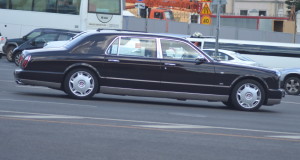Over the past several decades, the air travel industry has shown significant shift in standard operating procedure. In the past, flying was an extension of hospitality services offered elsewhere, creating a customer-oriented experience for those fortunate enough to travel by air. Amenities, like meals and other extras were commonplace, included in the cost of airline tickets. Baggage services were also included as a standard feature of the air travel experience, incorporated into fares without added costs. The reality for modern air travelers is significantly different than it was in the golden age of flying. In fact, flying quickly becomes expensive for travelers unfamiliar with add-on charges.
Rather than providing services aimed at guest satisfaction, today’s airlines offer base fares for flights, which can be upgraded to include other travel services. Baggage, for example, is now separated from the cost of plane tickets, accounting for an individual line-item with its own schedule of charges. It is not uncommon for passengers to pay $30 or more for each bag they check through to airline handlers. And in most cases, the prepaid baggage fee is paid for return trips too.
Advanced check-in has become a paid service for some airlines, which charge premiums for coveted seats like exit rows and bulkhead seating with extra leg room. And although a bag of pretzels might be included in the cost of a plane ticket, you are on your own when it comes to food while flying. Saving money on air travel means staying informed about additional charges airlines tack-on to fares, but travel bargains start with buying plane tickets for the right price. Seasoned travelers use these frugal strategies to keep air travel costs down.
Do Your Homework
Discount travel requires advanced planning, which opens-doors to the best air fares. And since Web-based travel sites are capable of comparing countless flight options, it is easier than ever to account for all of the alternatives available to travelers. What once required privileged travel-agent access can now be perused online with a few mouse clicks – without special credentials.
In many cases, travel deals extend in advance of travel dates, requiring cash-conscious travelers to buy tickets two-four weeks in advance. While the discount schedule is not as rigid as it once was, there are definitely benefits attached to booking in advance. On the other hand, highly flexible travelers benefit from last-minute offers, leading to significant savings on eleventh-hour specials offered by air carriers. To make the most of your frugal travel search, sign-up for notifications and email alerts from travel providers, giving you the inside track on special deals and promotions.
Well-Timed travel leads to Savings
To a large extent, the air travel industry relies on business travel, which is not always anticipated far in advance. Recreational travelers, on the other hand, follow regular travel patterns that help air carriers build their rate schedules. And since travel and hospitality businesses respond to supply and demand, just like other consumer categories, airline tickets cost the most when demand is high. As a result, frugal travelers look for money saving opportunities during the off-season, when demand is at its lowest point.
During slow times, airlines, hotels, restaurants and other tourist businesses reduce their rates, extending deals to entice patrons. Savvy travel planners know that each destination follows an ebb and flow popularity curve, enabling watchful bargain hunters to enjoy the same services as other travelers, at a fraction of the cost during the off-season.
Knowledge is a powerful tool for cost conscious flyers. By staying informed and planning your trip off peak seasons, you’ll land notable air travel deals.
 Living There
Living There

